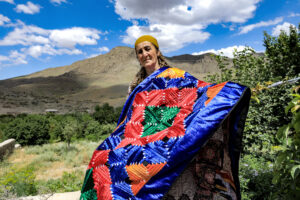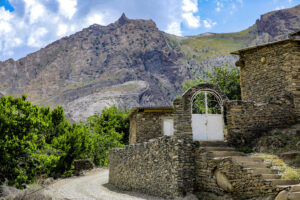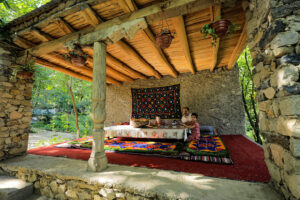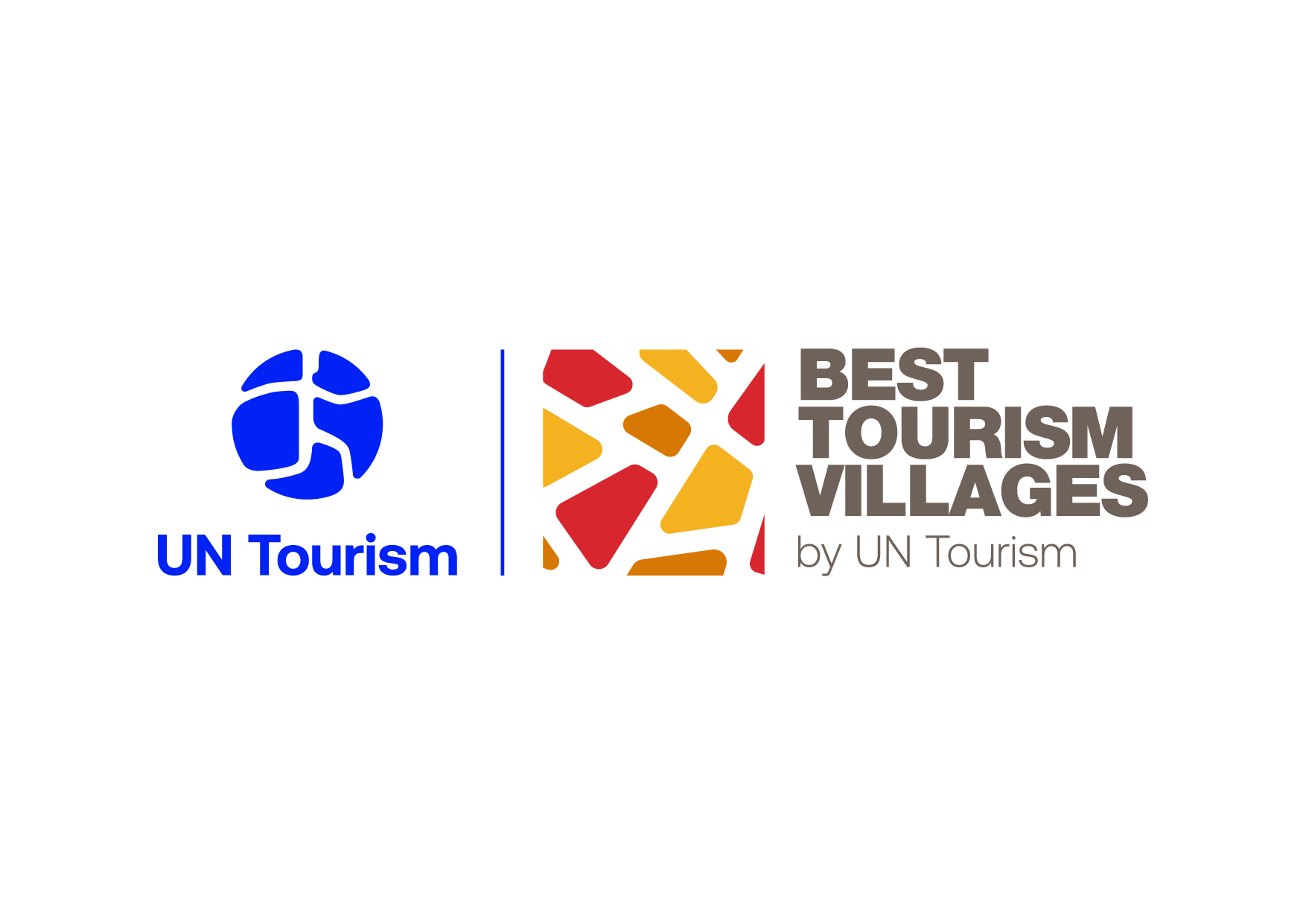SENTOB
UZBEKISTAN
2023
Contact
Sentob, Nurota, Uzbekistan.
Sentob is situated near the Aydarkol reservoir. The village is surrounded by natural parks, high mountains, and the Fazilman Lake, located 1650 meters above sea level. There are 701 households with a total of 2,024 residents living in the village. The village has developed tourism sustainably with a focus on nature, organic food and eco and mountain tourism. Many indigenous traditions have been preserved, and all the houses of the residents are built from natural wood. The local community turned this natural and heritage village into a tourism destination through various initiatives, involving historians, ethnographic and anthropology experts who researched and created a fact-based narrative of the destination and its branding.
Sentob is a village where most structures are made of or fenced by traditional stone walls. Most of the houses in the village were made of stone some 2,000 years ago with this architectural feature having withstood the test of time. The village’s ancient stone buildings, Fozilman Lake, a temple of Buddhism, and the necessary infrastructure were integrated into the texture of the village architecture where one can enjoy charming views of the local area. This aims to create better infrastructure with minimal impact on traditional architecture and natural resources.
The village is known for its many culinary delights therefore, the development of gastronomic tourism and the improvement of the traditional cooking master classes in local households have been revised with food experts provided by the Ministry of Culture and Tourism with the help of foreign experts of international organizations. Moreover, the community in Sentob values the inclusion of farmers and local producers, with the production of dried fruits being a well-established practice. Locals practice beekeeping, cultivate apricots, mulberries, and walnuts and produce authentic dairy products which are sold to local and foreign tourists. In addition, the villagers utilize the indigenous flora (mountain herbs) for medicinal purposes. These establishments have gained popularity amongst domestic and foreign visitors and wholesalers from metropolitan areas.
HIGHLIGHTS
-

Usta-Shogird
The tradition of Usta-Shogird (master-apprentice system) is actively encouraged, primarily by supporting craftsmen continuing their great grand fathers’ crafts by funding the renovation of their crafts studios and acquiring the necessary tools to improve their produce under the condition they are willing to train local youth. Local artisans have created contemporary accessories using sheep’s wool, such as intricately decorated clothing, mattress toppers, and carpets, which have garnered significant interest.
-

Community business
In the community, 22 family guest homes, 3 hostels, and 15 types of tourism services were built resulting in approximately , around 210 permanent jobs being created for local residents. The existing family guest houses have been painted in the hamlet’s natural hues without heavy paint therefore, preserving their naturalness. Every guest home is embellished with artisan objects manufactured in the area, which attracts foreign guests. In addition, acknowledging that some locals transformed their own houses into guesthouses, this provided an opportunity to earn an additional income from visitors’ stays whilst also selling homemade dried fruits and dairy products.
-

Environmentally Friendly Village
The village adopted the national environmental policy to promote the use of environmentally friendly products and to transition from single-use plastic to paper bags. One concern of particular interest was the active participation and implementation of measures aimed at protecting and improving the environment for the benefit of current and future generations. Additionally, iInnovative business ideas and start-up projects recommended for implementation in the fields of ecology, environmental protection, forestry and hydrometeorology were launched.

